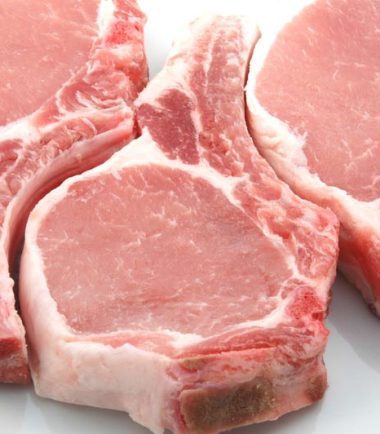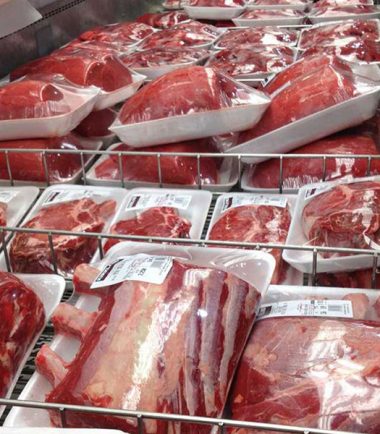Right away after the catch, mackerel are frozen within an hour; fish with high-fat content should ideally be frozen within 12 hours. Frozen mackerel can be preserved in great condition for at least 6 months if it is appropriately glazed and stored in cold storage at -30°C. If mackerel is wrapped in polyethylene bags that are filled up with water and frozen in vertical plate freezers, the cold storage life can be stretched to one year. The ice block is doubly covered by the encasing ice and by the wrapping against oxidation while in storage. Gutting is not required and can be a drawback, before freezing. For manufacturing, old or noticeably spoilt mackerel should never be used. Stale fish have red or brown eyes that are sunken, and blurry. The fish’s skin has lost its shine and has lost the strength and brilliance of its colours. Gills are deep brown or red, and from the gill covers, oozes a dark bloody mucus. The scent of the gills and fish’s body is unpleasant, moist or extremely oily; there is also a scent of ammonia sometimes.
– Mackerel is a significant source of essential Omega-3 fatty acids, with 2991 mg of fatty acids provided just from one fillet. It contains more omega-3 than any other fatty fish, and mackerel is also an inexpensive fish. Omega-3 fatty acids have a wide array of health effects, and inside the body, they have anti-inflammatory functions.
– It also contains high amounts of vitamin B12, an extremely imA cooked mackerel fillet that gives 279% of the RDI for B12el fillet. It is relevant for our nervous and immune systems and serves a role in the development of DNA as well.
– Mackerel is an exceptional source of protein, which ensures an adequate quantity of the essential amino acids.
– 71 percent of the required dietary intake for selenium is also provided by Mackerel. It is a vital mineral that functions as an antioxidant, controls thyroid hormones and plays an important role in our immune system’s health.
– It is an abundant source of several vitamins and minerals, such as vitamin D, zinc, magnesium and potassium, which are linked with improved heart health.
All our fish are frozen, including the mackerels. The fish that is frozen immediately upon harvest is impossible to distinguish from fresh fish, once it is cooked and served. Our frozen fish is the best here at Frozen Fish Direct as compared to the defrosted fish being offered as fresh in several supermarkets. And we can give the broadest possible variety at all times by freezing all our fish. Our frozen fish are properly packaged and wrapped, and always delivered frozen.
A 100-gram serving of Mackerel fillet provides:
Calories: 290
Calories from Fat: 207
Total Fat: 23g
Cholesterol: 90mg
Sodium: 570mg
Carbohydrates: 0g
Sugar: 0g
Fibre: 0g
Protein: 21g
Calcium: 20mg
Iron: 1.4mg



